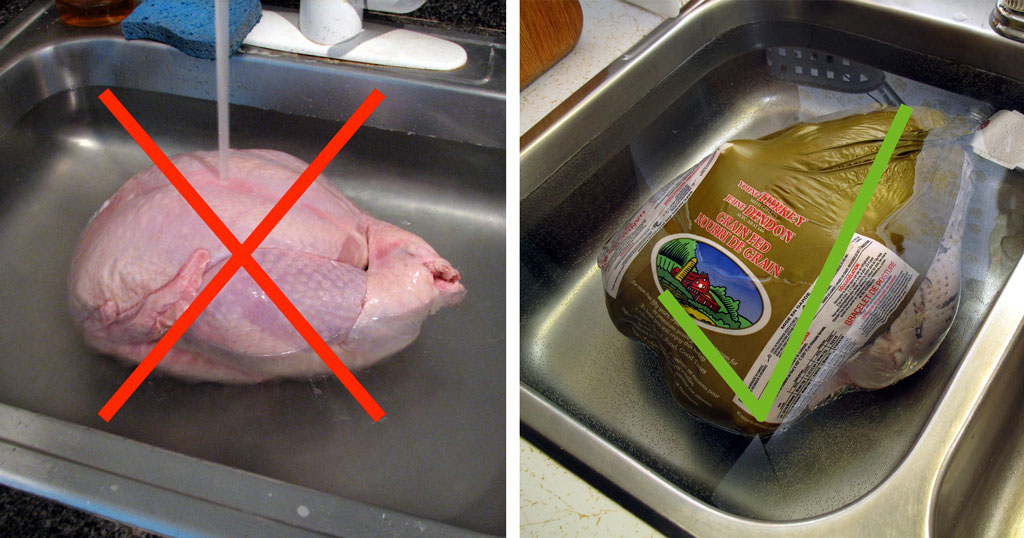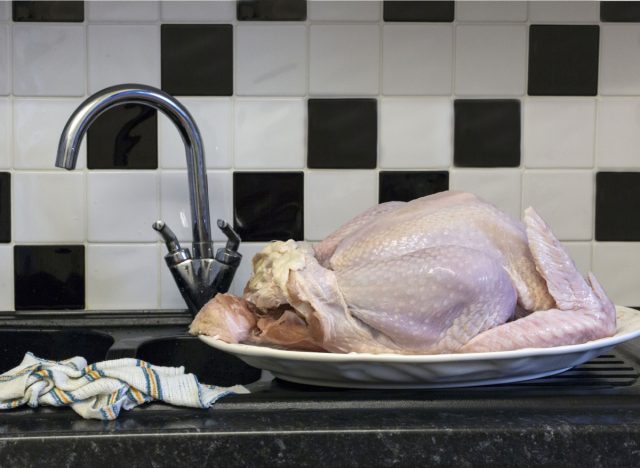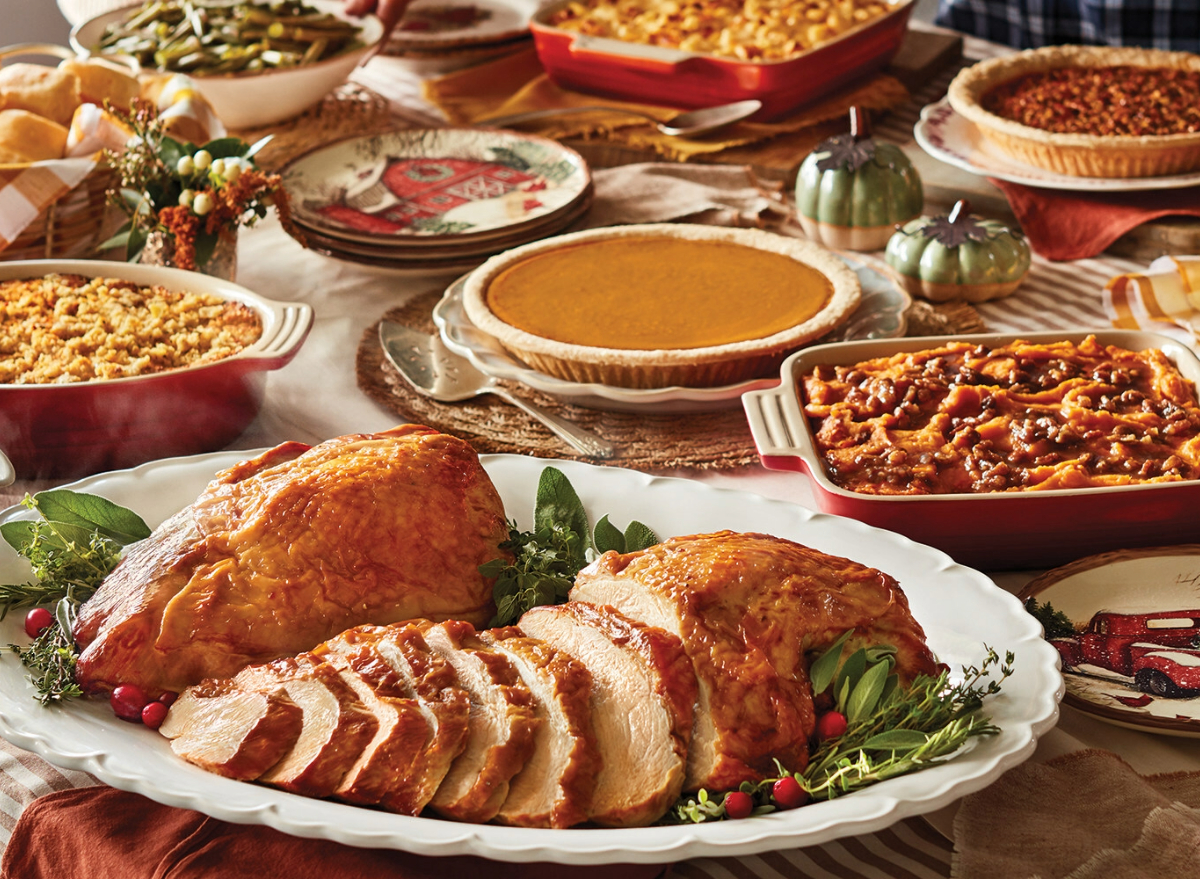5 Tips for How to Properly Thaw a Frozen Turkey
So the big day's coming up, and let's face it, hosting Thanksgiving is no easy feat. But beyond the ruckus involved in preparing a delicious dinner for one too many guests, food safety should be your top priority. After all, you want to send your loved ones home with leftover pumpkin pie (which just so happens to be one of the top-ranking types in our report 25 Most Popular Pies—Ranked)—not food poisoning. That's why we've compiled a few must-follow tips for how to thaw a frozen turkey; a process that if done incorrectly, has the potential to bring a ton of illness-causing bacteria to your holiday table.
While there are a few different ways to thaw a bird, nearly all of them require you to start the process a few days prior to Turkey Day. If you take the gobbler out of the freezer too late, you may wind up with a turkey that's hard as a rock come Thanksgiving—not what you want when you've been planning the perfect holiday menu for weeks! So start reading, guys, as it may already be time to start defrosting your dinner. And since you're already thinking about preparing some delicious poultry, why not read up on these 30 Things To Make With Leftover Turkey? We can almost guarantee you'll have some extra meat in the fridge come Friday.
Thaw It in the Fridge

If you don't want your turkey to become a nesting area for nasty bacteria—or your cat's midnight snack—don't thaw it on the counter. Instead, use the fridge. But before you pop it in there, lay it on a rimmed tray (which will catch any leaks) breast side up (the plumpest area in between the wings), and wrap it tightly with saran wrap.
When thawing your turkey in the refrigerator, you'll need to allow 24 hours of defrosting time for every four to five pounds of bird, according to the USDA. So if your turkey weighs four to 12 pounds, plan for it to defrost in the fridge for one to three days. And if it's 12 to 16 pounds, make sure you pop it in the fridge three to four days before the holiday arrives.
Wrap Turkey When Thawing in Cold Water

[/media-credit]
If you're planning to thaw your bird in cold water, make sure it's in a leak-proof plastic bag before you submerge it. This will prevent any cross-contamination and ensure that your bird won't absorb any extra water during the thawing process. Then, fill a bowl that's big enough to fit your bird with cold tap water. Submerge your wrapped turkey in it and change the water every half hour to ward off any contaminating bacteria.
Allow 30 minutes of thawing time for each pound of turkey, which translates to two to six hours for a four to 12-pound turkey and six to eight hours for a 12- to 15-pound bird. If you're still having trouble determining the thaw time of your turkey, check out Butterball's thawing calculator—which lets you choose either the refrigerator or cold-water method.
You Can Thaw Using a Microwave

Before you decide to thaw your Thanksgiving centerpiece in the good ol' microwave, make sure it actually fits in there with some extra space to spin. If your bird is small enough, pop it in sans wrappings on a microwave-safe dish. Then push the defrost button, punch in the weight of your bird, and let the microwave work its magic. If yours happens to lack a defrost function, determine how long your bird needs to stay in there based on its weight. Six minutes per pound is a good rule of thumb. Since microwaves tend to heat things unevenly, make sure to rotate and flip the meat throughout the thawing process.
Confirm It's Completely Thawed

To be sure your bird is totally defrosted, reach your hand into the hollow part and check for ice crystals. Then, using a fork, poke the thick parts of the bird and make sure it's no longer hard or icy. If it is, it needs more time to thaw.
Cook it Right Away

After it's thawed, your turkey must be cooked immediately—no ifs, ands, or buts. Why? Once the bird is defrosted, bacteria that were present before it was fully frozen can begin to regrow, according to the USDA. And that's bad news if you're planning to hit the malls the next day for some Black Friday bargains. Those invisible bugs could make you horribly sick! If you overestimated the amount of time your turkey needed to defrost and it's good to go a few days before T-Day, it's safe to store the bird in the fridge—just don't keep it in there for more than two days. And when turkey day finally rolls up, you might be curious to find out What Happens to Your Body on Thanksgiving.









